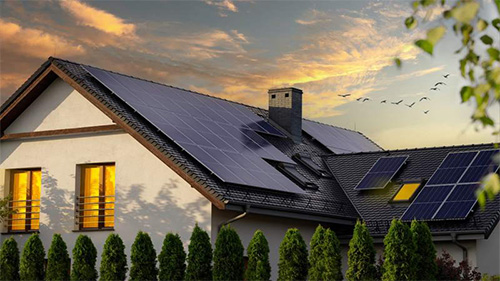How an Energy-Efficient Home Can Lower Your Mortgage Costs?

In an era where environmental awareness and financial prudence intersect, energy-efficient homes have become a popular choice for homeowners and potential homebuyers. Beyond the obvious environmental benefits, these homes also offer tangible financial benefits, particularly in terms of reducing mortgage-related expenses.
Financial Benefits of an Energy-Efficient Home
1. Lower Utility Bills
Energy-efficient appliances, high-performance windows, and sophisticated insulation are all used in the construction of energy-efficient homes to reduce energy usage. Electricity, heating, and cooling expenses may be decreased using this design. Monthly utility bills for homeowners that make energy-efficient improvements frequently show notable savings.
2. Increased Property Value
Energy-efficient homes typically appraise higher than conventional homes. This appreciation can be attributed to long-term cost savings and the growing demand for sustainable lifestyles. Potential buyers are increasingly prioritizing energy efficiency as they recognize its long-term financial benefits.
3. Obtaining a Green Mortgage
Lenders are increasingly offering green mortgages, which offer preferential terms for homes that meet specific energy efficiency standards. The cost of house ownership may be decreased by these mortgages' reduced interest rates, fees, or borrowing limitations. Examples of such products are programs like the GreenCHOICE Mortgage and the HomeStyle® Energy Mortgage.
Borrowers can include energy-saving upgrades in their house loan with an Energy Efficient Mortgage (EEM). This is true for refinances as well as new home purchases. A key advantage is that projected utility savings are factored into the mortgage qualification process, potentially helping borrowers afford a more expensive home or secure more favorable loan terms. Qualification often requires a home energy assessment to estimate the expected energy savings.
Practical Steps to Improving Home Energy Efficiency
Upgrade insulation and windows: Improving insulation and installing energy-efficient windows can significantly reduce heating and cooling costs.
Invest in energy-efficient appliances: Replacing older appliances with ENERGY STAR® certified models can reduce electricity consumption.
Install a smart thermostat: Smart thermostats can optimize heating and cooling schedules, saving energy.
Consider renewable energy: Solar panels and other renewable energy installations can further reduce energy bills and may qualify for tax incentives.
Investing in energy-efficient upgrades not only reduces short-term utility bills but also promotes long-term financial stability. Homes with lower operating costs are less likely to be at risk of foreclosure because homeowners can more easily manage their finances. Additionally, the growing emphasis on sustainability in the real estate market means that energy-efficient homes are more likely to retain or increase in value over time.
Recommended for you



